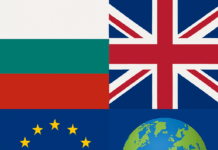By Rumy Vakarelska
Following two EU Summits, one referendum on July 5 and a number of heated conversations between Syriza’s Greek government and the country’s EU and international creditors, the Greek PM Alexis Tsipras delivered its last minute bail out proposals on 9 July to the EC’s President Jean-Claude Juncker. However, Greece’s new financial demands, although coming with extra economic reforms, raises the questions of a multi-speed Europe and the way the EU’s fiscal discipline legislation applies across the Union.
The proposal suggests extra loans of EUR 53.5 billion to “help cover Greek debts until 2018, a review of primary surplus targets and ‘reprofiling’ the country’s long-term debt. In return, Greece will phase out tax breaks for its islands, which provide the main cash flow for its tourist industry and taxes on shipping companies.”
Although Greece’s last offer on July 9 contains more reforms than before the Greek referendum on 5 July on the previous bail-out package by the EC, which was rejected by a wide majority of over 60pc, the new proposal is expected to be highly controversial in countries like Germany and many CEE countries, and there are good reasons why.
The accepted average fiscal deficit for the EU and the Eurozone is 3pc of national GDP. Britain’s deficit is above 5pc, which is already causing a stringent programme of budget cuts, as announced on 8 July in the latest controversial UK Budget. This is despite the fact that Britain’s not a member of the 19 country Eurozone. However, Greece has already received around EUR 130 billion from various creditors over the last five years. Greece has got higher basic pensions than the UK at EUR 900 on average and an earlier pension age than 67, which is now the accepted pension age in most EU countries.
Over the last few days, the President of the EU, Donald Tusk has been conservative about Greece’s bail out and even spoke about Grexit. Following a conversation between the President of the European Parliament, Martin Schulz (pictured to the right) with the Greek Prime Minister Alexis Tsipras (pictured to the left) in Strasbourg early this week, Mr Schulz said:
“This is a difficult day. There’s a broad majority in Greece and the promise of Prime Minister Tsipras to the Greek people that with the ‘no’ the position of Greece for negotiating a better deal would become better is, in my eyes, not true…” He added that the EU is in a difficult position, as the remaining 18 Eurozone countries have agreed on Greece’s previous level of borrowing.
Members of the Eurozone in post-global and post-financial crisis are not particularly impressed by this situation, especially Germany and Finland, as well as a number of CEE countries, which have gone through years of austerity and currency boards prior and after their EU accession in 2004 and 2007, respectively, meeting stringent EU fiscal requirements. Although the EU wants Greece in the Eurozone and in the EU, the outcome of the negotiations is a matter of subtle compromise over the next few days. On Saturday 11 July EU’s financial ministers meet to discuss the Greek offer when the head of the Eurogroup Jeroen Dijsselbloem is expected to make an important announcement, according to EU officials. On Sunday 12 July an extraordinary EU Summit will take place to consider Greece’s proposals, but in this situation no one can possibly predict what deal Greece may get at the end in this situation, one that is unprecedented for the EU. Mark Carney, the governor of the Bank of England (BoE), refused to comment on the impact of the Greek financial crisis on the UK, although more than half of the UK’s trade is with the EU, while the City of London has got the highest level of financial operations in Euro, although the UK is not a Eurozone member.
Boyko Borisov, the Bulgarian Prime Minister, said last week that Bulgaria is not going to be effected by the Greek crisis, but next week this position may be well reassessed. A top executive at the Bulgarian Banking Association (BBA) told BNT News that the number of Bulgarian companies, registered to use Greek capital is 14, 000, but not all of them are operational or use a substantial amount of Greek funds. However, the BBA spokesperson said that these companies may be hit by slower payments due to temporary lack of cash illiquidity in Greek banks. He also said that Bulgarian banks will not be affected regardless of their ownership, including Greek ownership. Meanwhile, a procedure for a new governor of the Bulgarian National Bank (BNB), who once elected will be expected to make a statement on the matter.
Bulgarians living in Greece have not yet started returning to Bulgaria, according to Bulgarian official sources, but Greeks have started shopping in Bulgaria using the difference between the exchange rate between the Euro (EUR) and Bulgarian Lev (BGN), whereby 1 EUR equals 2 BGN, thus stretching what they can get in the shopping basket. Owners of firms at the Bulgarian-Greek border, also exporting to Greece and elsewhere in the South East of Europe, are worried about their deals and income, according to international press reports.
Moreover, Tatiana Doncheva, a former MP of BSP, GERB’s opposition party, currently running a political NGO and a previous contender for the position of Mayor in Sofia, said in an interview before BNT that Bulgaria should learn from Greece how to defend its interests, but also pointing out that Greece has been for far too long a special case in the EU. More specifically, getting tax breaks and investments that have not been available to other EU countries and so getting a higher GDP at the expense of EU taxpayers.
She also said that Greece has become a special case in EU as the country joined, following a different route using the support of the USA. This was due to its importance as NATO’s South Europe shield, Doncheva said. The country is also among a few NATO members, which is spending the required 2 pc of its GDP in its defence budget, while a G7 country like the UK is currently catching up to meet this expenditure level. This is the reason Mr Tsipras recent attempt to establish a closer relationship with Putin’s Russia when he found himself in a challenging situation in the EU, has provoked an additional sceptical reaction across the Union. Greece also got France’s last minute support to table its last bail-out proposal on Thursday, while Italy has made it clear that would like to support Greece’s last bail-out offer. Greece may push again for yet another special status in the EU, stirring up new divisions among the EU’s remaining 27 members before potentially a new kind of unity develops in Europe. Copyright2015@RumyanaVakarelska, Partner, Team New Europe, editorial and public affairs consultancy supplying original editorial content to mass media and organisations.















